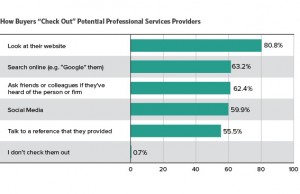This business trend implies the participation of a C-suite in achieving Sustainable Development Goals and building a better reality together. Staying aside from this powerful stream in a business world is no longer an option. Social entrepreneurship is gaining momentum.
A sustainable social enterprise — are we sure we know what is it? Many entrepreneurs find it a fresh perspective that can help build a better future for everyone through business solutions that address a social need. The term of social enterprise has been rapidly picked up by the powerful stream of DEI (diversity, equity, and inclusion), a three-part anthem of modern society. While we were speaking out about social sustainability through the decades, the power of the individual remained insufficiently revealed and unsupported by the financial and business worlds. A social enterprise arises to empower the individuals, meet their unique needs, and help the “excluded” participate in financial, social, and economic systems.

Photo by Ryutaro Tsukata on Pexels
A Social Enterprise: Business for Good
A social enterprise is a business that pursues a double mission, to grow revenue and to have a social impact. Modern consumers are more loyal to companies that offer something beyond their products and services. They trust brands that lead the initiative, which serves the common good and improves social objectives. We see the rise of for-profit and non-profit companies that foster environmental and societal values both inside and outside their organizations. They aim to empower the segments of society whose needs have been missed before.
A social enterprise is an organization that takes responsibility to be a good citizen and serves as a role model for its employees and consumers. It listens to, invests in, and supports non-profit initiatives that help meet sustainable development goals. For established businesses, a social enterprise means integrating social impact into existing business operations and prioritizing social goals alongside financial growth. For startups, a social enterprise means the ability to incorporate social impact and financial sustainability into the company’s DNA from its start.
A New Definition of Business Success
Business success has acquired a somewhat different meaning today. Hitting traditional goals of business performance is no longer the only metric of success. Today, businesses are valued not only by their performance but also by their interactions with consumers and their impact on society. According to Deloitte Insights, when CEOs were asked what their main measure of success in recent years was, the majority answered it’s the impact on society, including income inequality, diversity, and the environment.
Once the company, the team, or the individual makes a choice to change the culture, it steps on the path of social entrepreneurship in some meaning. It’s just a matter of everyone’s choice that defines the power of social impact and its sentiment (positive or negative). There is always an opportunity to choose to participate or not. It defines the company’s and the individual’s future life curve, as well as their capability to make an impact. To choose nothing means to make your choice anyway.
Performance Should Meet Purpose. Why Now?

Photo by Brett Sayles on Pexels
We will not say ‘many,’ but rather a ‘growing number’ of business enterprises become social enterprises today. Corporate responsibility had a place in many businesses before, but the change into a social enterprise means a more profound shift in enterprises’ thinking and doing. Why is this transition happening now? These five factors create a favorable environment for it.
The increased expectation of business leaders to respond to this world’s biggest social problems, such as inequality, poor healthcare, restricted access to financial services, etc. in the way possible in their areas.
Pursuing inclusion across different business sectors. Black lives matter, Asian lives matter, White lives matter. Female entrepreneurs need to have equal access to financial and insurance services. Race shouldn’t be the reason for the credit denial. And it’s just the beginning… Socially responsible businesses strive to blur or even remove the dividing line between different social groups by providing more accessible and inclusive services and products.
Fostering belonging amid a desire for individuality. When saying about social belonging, we consider individuals as unique parts of a larger whole in which everyone contributes to achieving shared goals. What if the individual was treated as a source of power, expertise, and skills of the community? Usually, the like-minded are willing to consolidate for achieving something bigger than they could do if they stayed apart. Today, many brands believe that by inspiring people inside and outside the company to gather around the same goals, they can build stronger and more productive teams and foster social consolidation in general.
Nurturing financial, digital, and social literacy. Illiteracy is one of the primary factors of human suffering and challenges in many aspects of life. Financial education is the foremost need for modern society, especially when it comes to protecting and empowering youth, financially underserved minorities, and elderly people. By taking the financial education initiative on social media and other online channels, forward-thinking financial organizations and fintech startups contribute to stopping the troubling trend of money anxiety and poverty in society.
The same refers to technical and social literacy. The stay-at-home lifestyle accelerated the digitization process and created conditions in which businesses and customers had to learn to manage their lives almost entirely online. However, many people of “non-technical” occupations and seniors faced this digital disruption as a problem due to insufficient tech-savviness. Today, some enterprises try to treat this segment of consumers with particular empathy. They help consumers participate in the new digital economy by providing easy-to-understand social media content, amplified customer service, and live advice on using/purchasing their services and products online. Also, businesses can contribute to social good by raising awareness about the key social values like equity, diversity, and inclusion among their employees and consumers.
Employee empowerment. Some companies take steps to integrate their employees’ financial, social, physical, and mental health into their working environments (whether it’s real-life or digital) to help them experience well-being not only when they are away from their work but also while they are doing it.
3 Social Enterprises Reinventing with Sustainability in Mind
These three companies are real-life examples of social enterprises that care and contribute to everyone’s good by providing their products and services. Meet them: the startup, the established for-profit venture, and the non-profit organization.
Hennii: Reimagining possible in finance
Hennii is the youngest brand on the list. It’s a fintech startup from San Francisco founded by Tauseef Bashir in 2020. It brings the social mission of making financial services more inclusive and accessible for everyone by using modern technologies. The team built a personal financial assistant based on Conversational AI to empower individuals to build their wealth and the peace of mind that comes with the kind of financial security achieved through socially conscious actions. Its primary goal is to help Gen Zers and Millennials manage their personal finances more effectively, increase their financial literacy, and help them pay off student loans and credit card debts faster and more easily.
Medic Mobile: Social impact in healthcare
Medic Mobile is a tech non-profit company incorporated by Josh Nesbit in 2009. They help health workers, hospitals, and families provide quality care to those in need through the use of web and mobile tools. Also, the company has distributed its initiative to 23 countries by training and equipping 13,173 medical workers with their unique mobile technology that includes SMS and SIM communication apps along with analytics and data-driven performance analysis for managing health systems.
Ben & Jerry’s: Social drivers in the food industry
This brand is primarily known for its ice cream and bold speakouts for human rights. The price for their ice cream is significantly higher than other brands, but they do so to pay their workers a livable wage of [$ 18.13] an hour. Ben & Jerry’s say that their mission is “to create linked prosperity for everyone that’s connected to our business: suppliers, employees, farmers, franchisees, customers, and neighbors alike.” Also, the brand is famous for its strong corporate statements on environmentally friendly farming and manufacturing, racial justice, and LGBTQ+ issues.
Transition to Business of The Future
The transformation of business enterprises into social enterprises is gaining momentum in different industries. Social entrepreneurship is reflective of two other mainstream and self-complementary trends, “social impact investing” and “conscious consumerism.” Amid the pandemic and times of uncertainty, society is experiencing the transition to more conscious consumerism and life in general. On this massive wave of “mindful” social trends, many investors more actively fund startups with a social mission. The trend of social entrepreneurship will bring big changes and define how many businesses will look in the near future.
Digital & Social Articles on Business 2 Community
(72)






